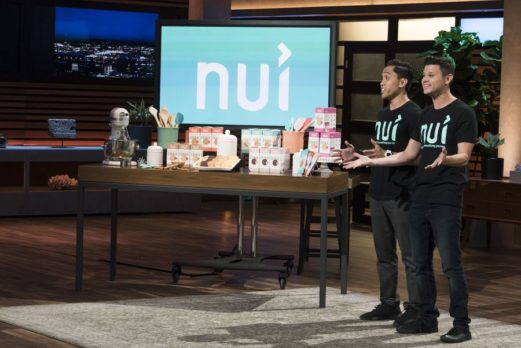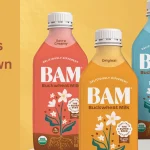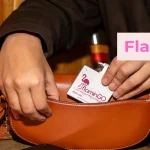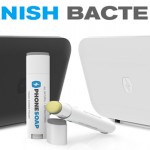Nui Shark Tank Update – Shark Tank Season 10
Kristopher Quiaoit and Victor Macias pitch Nui, their keto-friendly cookie brand, on Shark Tank, hoping to secure investment for expansion and broader distribution.

Kristopher Quiaoit and Victor Macias pitch Nui, their keto diet-friendly cookies, in Shark Tank Season 10 Episode 6. A few years ago, the guys decided to try the keto diet – a diet that virtually eliminates carbs and sugar. Victor actually lost forty pounds, and both men felt like they had more energy. They found it difficult to eliminate sugar since it’s in a lot of foods. The two friends also had a weakness for cookies.
They began experimenting in Kristopher’s mother’s kitchen, and after many tries, they came up with a cookie that was low-carb, low-sugar, and delicious.
Check out other Shark Tank Season 10 Episodes.
About Nui
| Category | Details |
|---|---|
| Business Name | Nui |
| Founders | Kristopher Quiaoit and Victor Macias |
| Industry | Food / Keto-friendly Snacks |
| Product | Low-carb, keto-friendly cookies |
| Deal Status | Deal secured with Alex |
| Investment Asked | $300,000 for 10% equity |
| Deal Outcome | $300,000 for 25% equity |
| Valuation | $3 million |
Nui cookies are made with almond, good fats, and natural sweeteners. There is a little naturally occurring sugar in the nuts, but it would take almost 20 Nui cookies to equal the amount of sugar in one traditional cookie.
With a blend of natural sweeteners, monk fruit, and erythritol, the guys managed to make a cookie that’s as sweet as any other. Each cookie is gluten-free, low net carb, diabetic friendly, and keto-friendly.
They got their business going with two Kickstarter campaigns, one raised $21,495 in August 2016 and another raised $79,187 in October 2017. Back then, they were calling it “The Keto Cookie.” They changed the name to Nui and rebranded in May 2018.
A pack of 16 cookies costs twenty-five bucks. There are four flavors: Ginger Something, Chocolate Chip, Peanut Butter, and Double Chocolate. Reviews online are mostly positive, and almost everyone thinks they taste yummy. Right now, they’re only available online. They likely want a Shark’s help getting broader distribution.
Video
Nui Shark Tank Recap
Kristopher and Victor enter the Shark Tank seeking $300,000 for 10% of their business. They tell their story and give their pitch, then hand out samples. In the past year, they sold $1.1 million.
They use keto influencers to promote products. They had to hire a co-packer to keep up with demand; they hope that will increase margins, too.
Did Nui Get a Deal on Shark Tank?
Mark has a competing company, so he’s out. Lori doesn’t like their valuation; she’s out. Kevin offers $300,000 for 2.5% and $1 royalty per unit, which drops to 45 cents in perpetuity once $300,000 is recouped.
Barbara offers $150,000 plus a $150,000 line of credit for 15% plus a 50-cent royalty in perpetuity. A-Rod offers $300,000 for 25% and the guys accept.
Nui Shark Tank Update
The Shark Tank Blog constantly provides updates and follow-ups about entrepreneurs who have appeared on the Shark Tank TV show. It looks like the deal with A-Rod didn’t close.
They expanded their product line to include chewy cookies in the year following their air date (2018). That year, they did $1.7 million in sales. They are in Walmart and on Amazon.
In 2020, they stopped posting on their social media and their website went dark. As of April 2022, that hasn’t changed. Both men still list Nui as their business on LinkedIn, but I’d say they’re out of business.
In August 2022, Kristopher cleared the air on his LinkedIn profile. Apparently, the co-packer they hired shipped cookies that weren’t shelf-stable, and they began getting complaints about moldy cookies. They had to issue refunds and toss out a significant amount of product.
The company didn’t have insurance and had to take out massive debt to cover their losses and launch a new line of cookies. They tried to market their new cookies and did so successfully for a time, but the debt crushed them.
The business shut down in 2020, and Kristopher declared personal bankruptcy. He is unemployed at this time. Victor still lists the company as “open” on his LinkedIn profile; he is currently selling business training courses on his website. The estimated net worth of Nui is $o, as it is not in business.
Posts about Nui on Shark Tank Blog
Where Can You Buy It?
Keto cookies are not available for purchase as it is out of business. Check out their social media for more updates: Facebook and Twitter.
Quick Summary
- Kristopher and Victor pitch Nui, a line of low-carb, keto-friendly cookies, seeking $300,000 for 10% equity.
- Nui cookies are made with almond flour, good fats, and natural sweeteners like monk fruit and erythritol, offering a gluten-free, diabetic-friendly, and low-sugar treat for keto dieters.
- Despite initial success with $1.7 million in sales, the company faced a major setback due to a co-packer’s shipment of moldy cookies, leading to massive losses and the eventual closure of the business in 2020.
Curious to know about more products from this episode? Check out other businesses that participated alongside Nui.






















